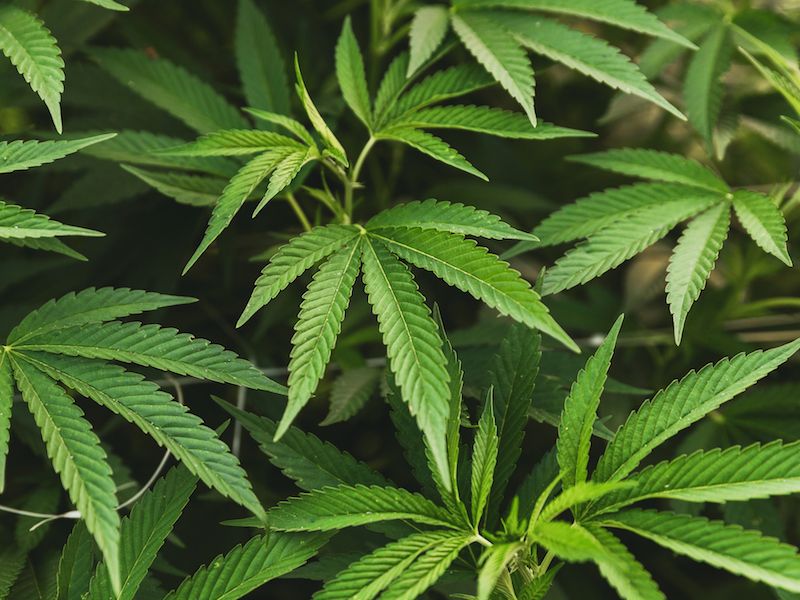
Public opinion surrounding cannabinoids and marijuana have changed incredibly over the last several decades. Many states currently allow the use of marijuana, THC, or cannabinoid products for medicinal applications. A decade ago it would have been unthinkable for pot to be legal for recreational use but some states have even passed this law.
A group of compounds originating from the cannabis plant (the marijuana plant, essentially) are referred to as cannabinoids. New things are being discovered about cannabinoids all the time despite their recent decriminalization in some states. We often consider these particular compounds as possessing universal healing qualities, but existing research implies there could also be negative effects such as a strong link between cannabinoid usage and the development of tinnitus symptoms.
Cannabinoids Have Numerous Kinds
Today, cannabinoids can be consumed in many forms. It isn’t just weed (or ganja, or refer…..ok, there are a lot of nicknames for marijuana so let’s move on). Nowadays, THC and cannabinoids are available in pill form, as lotions, as inhaled vapor, and lots of others.
The forms of cannabinoids obtainable will vary state by state, and under federal law, many types are still illegal if the amount of THC is over 0.3%. That’s why many people are rather cautious about cannabinoids.
The problem is that we don’t yet grasp much concerning some of the long term side effects or risks of cannabinoid use. A good example is the new information about how cannabinoids influence your hearing.
New Research Into Cannabinoids And Hearing
A wide range of illnesses and medical conditions are believed to be improved by cannabinoids, whatever you like to call it. Based upon evidence that is anecdotally available, conditions like vertigo, nausea, seizures, and countless more appear to be helped by cannabinoids. So researchers decided to find out if cannabinoids could help with tinnitus, too.
Tinnitus might actually be caused by cannabinoid use, as it turns out. Based on the research, more than 20% of study participants who used cannabinoid products reported hearing a ringing in their ears. And that’s in people who had never experienced tinnitus before. Furthermore, marijuana users were 20-times more likely to report having tinnitus symptoms after 24 hours.
Added research indicated that marijuana use could aggravate ear-ringing symptoms in people who already suffer from tinnitus. So, it seems fairly certain that cannabinoids and tinnitus aren’t really compatible.
How Cannabinoids Make Tinnitus Worse
Your tinnitus can be aggravated by cannabinoids in a couple of tangible ways. The first is that your tinnitus can happen more frequently. Cannabinoids can also make those tinnitus episodes more extreme. The discomfort from the ringing may get more noticeable or harder to just ignore.
Cannabinoids have also been shown to lead to the onset of tinnitus symptoms. Or, explained another way: if you didn’t have tinnitus before, you might develop tinnitus after you use cannabinoids.
Unclear Causes of Tinnitus
Just because this connection has been discovered doesn’t inevitably mean the underlying causes are very well understood. That cannabinoids can have an affect on the middle ear and on tinnitus is fairly clear. But what’s causing that impact is far less clear.
But we can say for certain that marijuana is one of the few commonly used mood-altering substances that brings about tinnitus (alcohol, as an example, hasn’t been demonstrated to have a strong connection to tinnitus).
Research, unquestionably, will continue. Cannabinoids nowadays come in so many kinds and forms that understanding the underlying link between these substances and tinnitus would help people make smarter choices.
The Miracle Cure Beware
There has certainly been no shortage of marketing hype associated with cannabinoids in recent years. That’s partly because perceptions are changing about cannabinoids (and, it could also reveal that people are trying to move away from opioid use). But this new research clearly demonstrates that cannabinoids can and do bring about some negative consequence, especially if you’re worried about your hearing.
The marketing about cannabinoids has been very assertive and you can’t entirely steer clear of all of the enthusiasts.
But tinnitus and cannabinoids are clearly connected based on this research. So if you suffer from tinnitus, or if you’re worried about tinnitus it may be worth steering clear of cannabinoids if you can, regardless of how many advertisements for CBD oil you might come across. The link between cannabinoids and tinnitus symptoms has been pretty securely demonstrated by the research, so it’s worth being careful.
